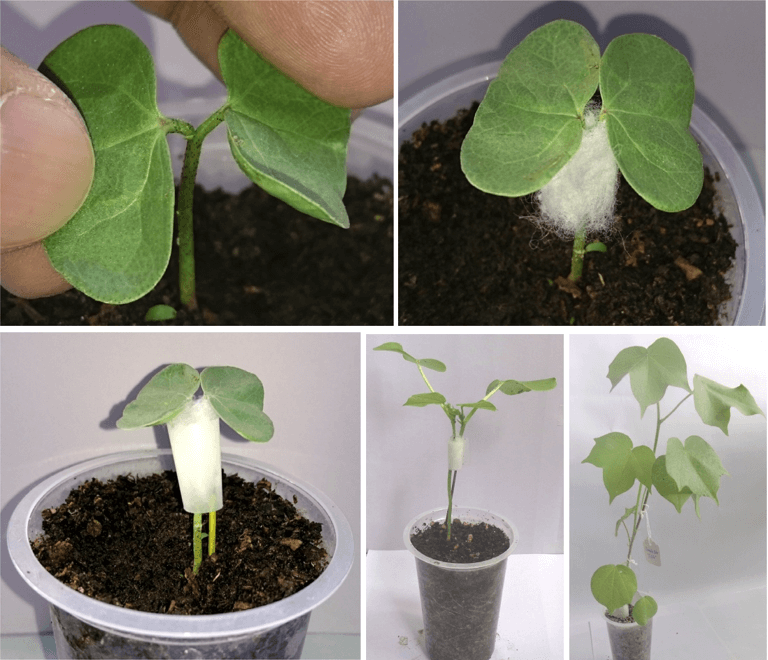Lifeasible is an industrial leader in plant genetic engineering. We provide miscellaneous strategies for the genetic transformation of Gossypium hirsutum (upland cotton). As a major source of fiber, cattle feed, and edible oil, Gossypium hirsutum has very high economical values worldwide.
The growth and development of cotton can be adversely influenced by biotic and abiotic stresses such as viral and fungal infections, insect predation, and drought stress. However, these conditions can be avoided or attenuated via genetic modifications. For instance, transgenic cotton plants expressing the Bt gene, a gene that encodes Bt toxin, are able to produce natural insecticide against some of the major pests and have been successfully accommodated in many countries.
Four methods are routinely employed for cotton transformation including:
With superior expertise with high reliability, Lifeasible is devoted to guaranteeing the quality and success of each project. We offer customized protocols for worldwide customers with various genetic transformation methods, as aforementioned. We also offer multiple high-class cotton varieties including Coker series, Acala B1654, TM-1 variety, Jin 7, Zhongmian 12, Narasimha, Si Mian3, etc. Moreover, Agrobacterium strains such as GV3101, AGL-1, EHA101, EHA105, LBA4404, and C58C1, as well as standard or super-binary vectors with optional selection markers are also available in our product catalog. Our customer-centered service ensures the quality of your experiments and the success of your research projects.
 Figure 1. In planta transformation of cotton by infecting wounded shoot apical meristems (SAMs) with Agrobacterium (Kalbande and Patil, 2016).
Figure 1. In planta transformation of cotton by infecting wounded shoot apical meristems (SAMs) with Agrobacterium (Kalbande and Patil, 2016).
Reference:
Lifeasible has established a one-stop service platform for plants. In addition to obtaining customized solutions for plant genetic engineering, customers can also conduct follow-up analysis and research on plants through our analysis platform. The analytical services we provide include but are not limited to the following:
July 13, 2024